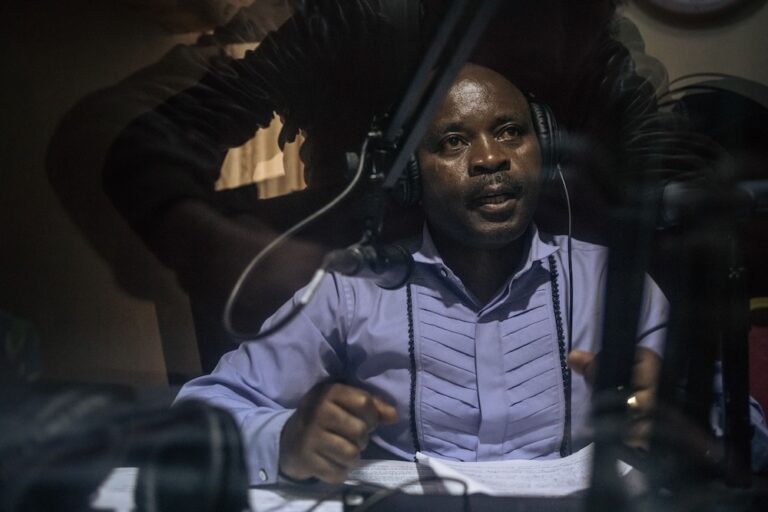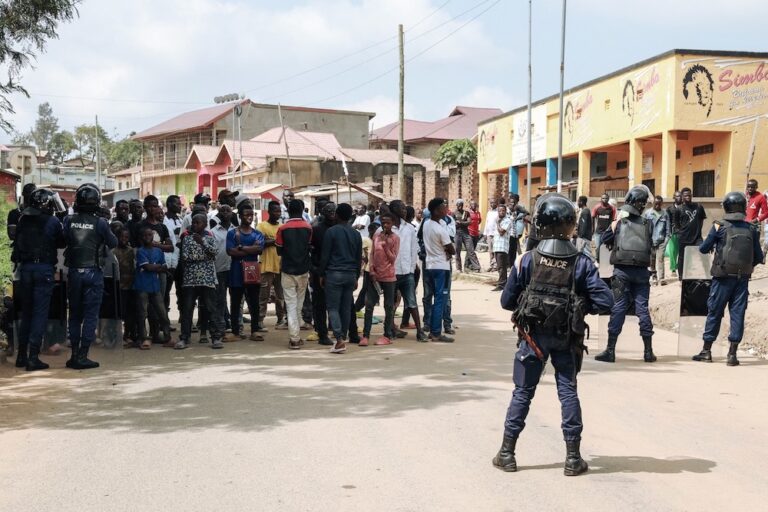Joachim Diana faces six months in jail and a fine of US $20,000 for writing an article that criticizes a Chinese business in Kinshasa.
(Edited and condensed)
(JED/IFEX) – Joachim Diana, editor of La Colombe, a private newspaper published in Kinshasa, was arrested on 12 February 2013 at La Colombe‘s headquarters by three men, one of whom was wearing a police uniform. The journalist was taken to the Gombe/Kinshasa peace court, where he was held for several hours before being transferred to Makala’s central prison that same day. Diana was arrested after being sentenced, on 31 December 2012, by the Gombe/Kinshasa court, to six months in prison and fined US $20,000 for “detrimental allegations” against a Chinese business in Kinshasa.
On 9 February 2012, La Colombe published an article titled “An unwelcome Chinese man for various crimes, his businesses are sealed.” In his article— accompanied by a photo of the manager of the firm Gen Tai— Diana wrote:
“The acts committed by Mr. Tian Sheng against his fellow Chinese citizens and other Congolese workers should be considered crimes. They are, without a doubt, crimes in the real sense of the word. For example, it is a threat to the physical well-being of Congolese persons to give them expired pharmaceuticals, as is hiring a Chinese nurse as the head of the Gynecology Department at the Hong Xin hospital complex, with the obvious aim of prompting caesarians in order to make a profit….”
Interviewed by JED, a member of La Colombe‘s editorial team said that Joachim Diana had been summoned and heard in court six months ago by a state prosecutor regarding the article. “Since then, he had not been summoned. We were surprised to see his case resurge, up until his imprisonment,” he said.
Without having gotten to the bottom of this case, JED believes that the double sentence inflicted upon the journalist is largely disproportionate. JED also believes that it completely contradicts the political will of the government, as expressed by Prime Minister Matata Ponyo in his action program, in which he announced that one of his priorities was to decriminalize press offences, which would only be punishable through fines.


